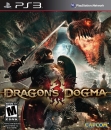As long as Xbox division is profitable there is no need to spin off.
Memo To Microsoft: Spin Off Xbox
Dec. 23, 2014 3:39 PM ET | by Kofi Bofah | about: msft | includes: sne, ntdoy
Summary
•Popular culture success for the Xbox has not translated into real bottom line growth for Microsoft.
•The Microsoft Xbox One has lost important ground to Sony's PlayStation 4.
•An Xbox spin-off would grant the standalone video game company more freedom and could ignite growth.
•Meanwhile, Microsoft could focus its efforts upon defending its core software businesses.
Microsoft (NASDAQ:MSFT) launched its first Xbox video game console in 2001. From there, the Xbox may have emerged as the lone popular culture hit in a Microsoft lineup that grew to include the relatively ill-fated Windows 8 and Windows Phone releases. The gaming console industry has evolved into a winner-take-all duopoly pitting the Xbox against Sony's (NYSE:SNE) PlayStation platform. Nominal sales and popular culture success, of course, do not necessarily translate into profitability.
Microsoft, at its core, sells software to enterprise customers. Most likely, Microsoft would deliver higher margins and returns, if it were to spin off its Xbox division to current shareholders or sell the unit altogether to third-party investors. Going forward, this move would help MSFT significantly outperform the S&P 500 benchmark index over the long term.
For his part, Microsoft founder Bill Gates has claimed he would "absolutely" support a decision by Satya Nadella to spin off the Xbox.
The Microsoft Business Model
(click to enlarge)
Going forward, Microsoft may dramatically outpace the S&P 500, if it were to spin off the Xbox.
On June 30, 2014, Microsoft closed out the books on its 2014 fiscal year. During this period, Microsoft racked up $59.9 billion in gross margins off $86.8 billion in revenue. A closer look at the financials, again, may confirm the ongoing thesis that Microsoft has remained in the core business of supplying software and productivity tools to the enterprise market. For 2014, the Microsoft Commercial Licensing operating segment generated $38.6 billion in gross margins off $42 billion in segment revenue. Microsoft includes its server products, Office for business and the volume licensing of its Windows operating system in the dominant Commercial Licensing grouping.
Microsoft breaks its Devices and Consumer operating segment into Licensing, Computing and Gaming Hardware, and Phone Hardware. Devices and Consumer Licensing accounts for original equipment manufacturer, academic and non-volume licensing of Windows and Office software. In all, Devices and Consumer Licensing generated $17.2 billion in gross margins on $18.8 billion in revenue through 2014. For the sake of comparison, Computing and Gaming Hardware generated a mere $893 million in gross margins off $9.6 billion in sales. Interestingly, Microsoft has combined both Xbox and Surface sales together beneath its Computing and Gaming Hardware subunit.
Despite its iconic popular culture success, the Xbox gaming console has racked up losses for several quarters. For 2014, Microsoft specified that its Xbox platform revenue increased by $1.7 billion, or 34%, in comparison to 2013. Microsoft also reported that year-over-year Xbox cost of sales increased by $2.1 billion, or 72%, largely due to marketing expenses related to the November 2013 Xbox One launch.
Gaming consoles, of course, are more likely to turn profits as they mature and component costs decline. In any event, Microsoft Xbox margins have been shockingly thin relative to software profits. The drumbeat and catcalls to spin off the Xbox appeared to reach a fever pitch between 2013 and 2014, with Steve Ballmer resigning as both CEO and as a board member. Last May, current CEO Satya Nadella, however, dismissed speculation that the Microsoft Xbox division was on the shopping block, in remarks made at the Code Conference in Southern California.
Microsoft Xbox One Versus Sony PlayStation 4
Microsoft Xbox versus Sony PlayStation has emerged as one of the most polarizing wars within the consumer electronics space. To date, PlayStation 4 sales have far outpaced Xbox One receipts. Going forward, the pressure will likely mount for Microsoft to spin-off Xbox, if its current-generation gaming consoles continue to struggle against the Sony PlayStation 4 competition.
Heading into November, Sony confirmed it sold a total of 13.5 million PlayStation 4 units directly to customers. Microsoft has yet to break out specific Xbox sales performance figures. Last November, Microsoft did issue a somewhat vague statement indicating that it had shipped 10 million Xbox One units to retailers.
Microsoft did offer an aggressive $50 Xbox One price cut heading into the holiday season. The Xbox One now begins at $349.00 from an original price of $499.00. Meanwhile, Wal-Mart (NYSE:WMT) now offers the base 500GB PlayStation 4 console for $329.00. For $429.00, consumers may purchase an Xbox One console with one extra controller and their game of choice. Xbox peripherals include Kinect, a motion sensory tool and Xbox Live for building out online gaming communities and digital media streaming.
For years, Microsoft has refereed a tug-of-war between overly ambitious executives pitching the Xbox as a multipurpose living room entertainment fixture and a subset of diehard fans only interested in gaming and crisp graphics. Last summer, online magazine Hardcore Gamer thoroughly slammed the Xbox for having "lost its identity." Apparently, the PlayStation 4 has earned a reputation for delivering raw horsepower and specifications to hardcore gaming enthusiasts, while Microsoft busied itself packaging its Xbox One with expensive, yet unwanted accessories. An Xbox spinoff, of course, would grant the video game company freedom to focus its energies strictly on gaming, rather than being dismissed as an unwitting apparatchik for Microsoft productivity and cloud software.
Over time, it is inevitable for video game consoles to become increasingly commoditized to the point where pricing may emerge as the most important factor driving consumer behavior. Popular third-party video game franchises, such as NBA 2K, Madden, Grand Theft Auto, and Call of Duty, are all available for play on both the Microsoft Xbox and Sony PlayStation gaming platforms. Halo, with its more than 60 million in units sold, has emerged as the most important title exclusive to Xbox. One title, however, will not swing the balance of power away from Sony and towards Microsoft in these console wars.
The Bottom Line
On March 31, 2014, Nintendo (OTCPK:NTDOY) closed its 2014 books having racked up $225 million in net losses on $5.6 billion in revenue. At that time, traders valued Nintendo at roughly $15 billion in market capitalization, or for slightly less than three times revenue. The Xbox, with its branding, implicit early-stage Microsoft backing and growth potential should be able to command a price tag of 10 times revenue out on the open market, as a spinoff. For fiscal 2015, the Xbox platform may generate $2 billion in total net sales, which would calculate out to a $20 billion spin-off, at 10 times revenue. Microsoft, which trades for just under $49, as of this writing, now operates with approximately $400 billion in market capitalization. At these levels, Microsoft could spin off one share of the new standalone Xbox Corporation, for every 20 shares of common stock outstanding.
Microsoft may also consider maintaining a 35% stake within the new Xbox Corporation, through a combination of cash and debt financing, as a poison pill, to ward off a hostile move from Sony. Certainly, Sony may look to aggressively purchase shares in the Xbox spinoff, simply to shut down the competition and ultimately monopolize the gaming console market. At the same time, long-term investors within the new Xbox spinoff would certainly prefer that Microsoft transitioned into a passive video game investor. This hands-off approach would enable the new entity to still leverage a slice of Microsoft's immense financial resources, while also granting Xbox executives the authority to navigate the gaming industry as they see fit.
The proposed Xbox spinoff would be literally taking a page out of the Big Oil playbook. Exxon Mobil (NYSE:XOM), Chevron (NYSE:CVX), and ConocoPhillips (NYSE:COP) each recently divested themselves out of low-margin downstream operations and gasoline retailing. In 2012, ConocoPhillips completely spun off its Phillips 66 (NYSE:PSX) refining, marketing, transportation and gas station operations to shareholders.
Certainly, Microsoft would be very much well positioned to mint even greater amounts of cash, as the literal go-to business for productivity software. As a leaner company, Microsoft would far outpace the S&P 500, after plowing its fat profit margins back into defending core software operations, paying out higher dividends and aggressively buying back stock. In doing so, Microsoft may finally reenter the conversation alongside rival Apple (NASDAQ:AAPL) as a story stock.
Disclosure: The author is long AAPL, XOM. The author wrote this article themselves, and it expresses their own opinions. The author is not receiving compensation for it (other than from Seeking Alpha). The author has no business relationship with any company whose stock is mentioned in this article.
Source: http://seekingalpha.com/article/2777035-memo-to-microsoft-spin-off-xbox




































































